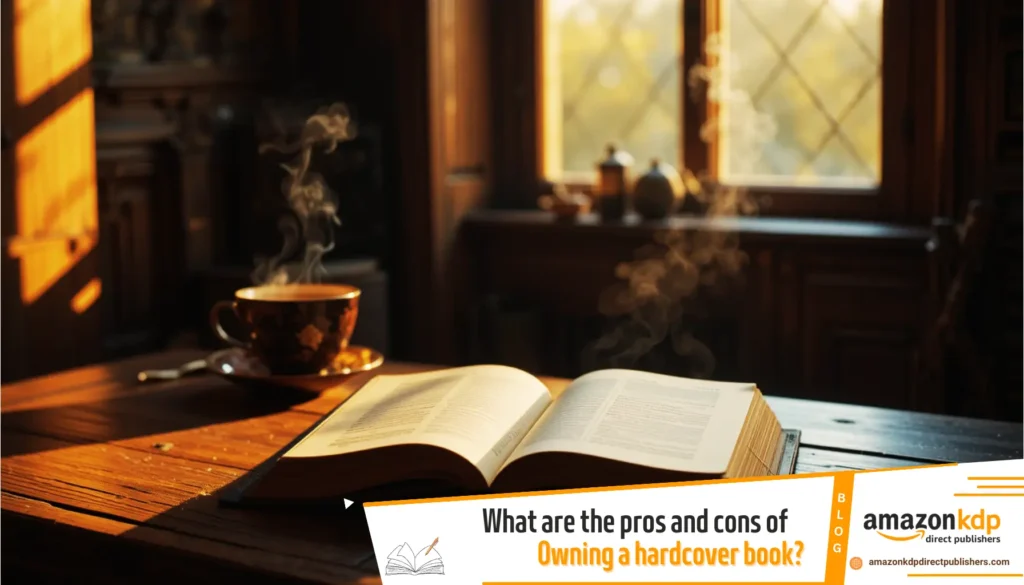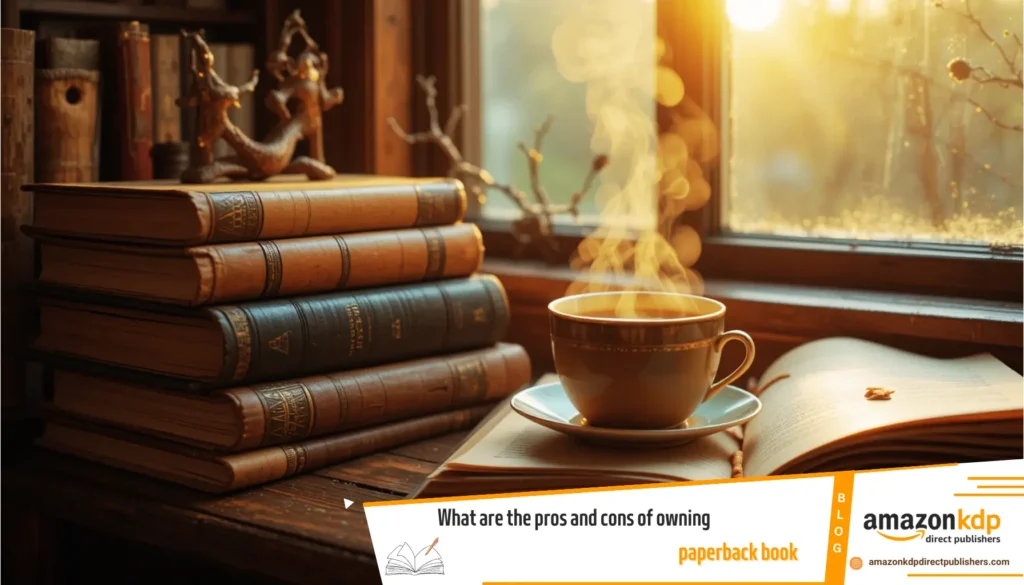Introduction: The Eternal Debate — Amazon Paperback vs Hardcover?
When it comes to buying books, the choice between Amazon Paperback vs Hardcover often sparks debate. Both formats have passionate advocates, but which one truly wins? Whether you’re a budget-conscious reader, a collector, or someone who prioritizes portability, this guide breaks down the pros and cons to help you decide.
1. Cost: Paperback Books Win for Affordability
Paperback books are typically 30-70% cheaper than their hardcover counterparts. For example, a new hardcover novel might cost $25–$35, while the paperback version often retails for $12–$18. This makes paperbacks ideal for casual readers or those on a tight budget.
Hardcover books, while pricier, are often seen as prestige purchases. They’re popular among collectors, bibliophiles, or readers who want to support authors by buying first editions. If you’re looking for longevity or resale value, hardcovers might justify the splurge
2. Durability: Hardcover Books Last Longer
If durability matters, hardcover books take the crown. Their rigid covers and sewn bindings withstand years of use, making them perfect for frequent re-reads or display on bookshelves. Libraries and schools often opt for hardcovers for this reason.
Paperback books, though lightweight, are more prone to wear and tear. Pages can crease, spines may crack and covers might tear with heavy use. However, modern trade paperbacks (larger, sturdier paperbacks) offer improved durability at a lower cost.
3. Portability: Paperbacks Are Travel-Friendly
For commuters, travelers, or readers on the go, paperback books are the clear winner. They’re lightweight, easy to hold, and fit snugly into bags without adding bulk. A typical paperback weigh 8–12 ounces, while a hardcover can tip the scales at 1.5–3 pounds.
Hardcover books, though less portable, offer a luxurious reading experience. Their larger trim sizes and higher-quality paper make them ideal for coffee-table books or art volumes.
4. Aesthetics: Hardcover Books Elevate Your Shelfie
Let’s face it: hardcover books look stunning on shelves. Their uniform spines, embossed titles, and dust jackets add a touch of elegance to any room. If you’re curating a home library or gifting a book, hardcovers feel more special and thoughtful.
Paperback books lean into minimalist charm. They’re practical for casual readers who prioritize function over form. Plus, their smaller size makes them easier to store in tight spaces.
5. Environmental Impact: Paperbacks Have a Smaller Footprint
Eco-conscious readers often prefer paperback books. They require fewer materials (less paper, glue, and ink) and are easier to recycle. However, both formats have environmental trade-offs, as mass production impacts forests and energy consumption.
Hardcover books generate more waste due to their sturdy construction, but they’re often passed down or resold, reducing their carbon footprint over time.
6. Availability: Paperbacks Dominate the Market
Most books are released first in hardcover, followed by a paperback edition months later. If you want the latest bestseller immediately, you’ll likely pay a premium for the hardcover. However, paperbacks dominate used bookstores, libraries, and budget retailers like thrift shops.
Which Should You Choose? A Quick Cheat Sheet
- Pick a Paperback If:
- You’re on a budget.
- Portability is key (e.g., travel, commuting).
- You prefer quick, casual reads.
- Pick a Hardcover If:
- You’re a collector or decorator.
- You want a long-lasting, high-quality edition.
- You’re gifting a book or supporting an author’s first edition.
Conclusion: It’s All About Your Reading Lifestyle

Neither format is “better”—it’s about aligning your choice with your needs and values. Pair this guide with your preferences, and you’ll never second-guess a book purchase again.
Which format do you prefer? Share your thoughts in the comments below.
FAQs: Amazon Paperback vs Hardcover – Which is Better?
1. What is the main difference between paperback and hardcover books?
The primary difference lies in their binding and cover material. Hardcover books feature a thick cardboard cover, while paperbacks have thin, flexible covers. This structural variation impacts durability, portability, and cost.
2. Are hardcover books more durable than paperbacks?
Yes, hardcover books are far stronger and more durable than paperbacks due to their rigid covers and reinforced binding. They are also less likely to become damaged over time, making them ideal for long-term storage.
3. Why are hardcover books typically more expensive than paperbacks?
Hardcover books are generally more expensive because they cost more to produce. Their sturdy construction, larger size, and premium aesthetic contribute to the higher price point. In contrast, paperbacks are more affordable to manufacture and purchase.
4. Which type of book is better for portability?
Paperback books are lighter and easier to carry around, making them more convenient for readers who prefer mobility or travel. Their lightweight design is one of their key advantages.
5. Do hardcover books offer any aesthetic benefits compared to paperbacks?
Absolutely! Hardcover books are often associated with a sense of durability, aesthetic appeal, and a premium vibe. They are commonly chosen for home libraries or as collector’s items.
6. When might it make sense to choose a paperback over a hardcover?
If affordability and convenience are priorities, paperbacks are the better option. They are cost-effective, easy to handle, and widely accessible, making them an excellent choice for casual reading or mass-market distribution.
7. Are hardcover books always bigger than paperbacks?
Not always, but hardcover books tend to be thicker and larger overall due to their cardboard covers and additional materials used in binding. However, there are exceptions where paperbacks may match the size of hardcovers.
8. Should I buy a hardcover if I want to be the first to read a new release?
Traditionally, publishers release hardcover editions first, often targeting eager readers who prioritize early access. If being among the first to read a book is important to you, opting for a hardcover might be the best choice.
9. Are there any downsides to choosing a hardcover book?
While hardcovers are durable and visually appealing, they are bulkier and less portable than paperbacks. This makes them less practical for readers who value convenience or need something lightweight to carry around.
10. Which format is better for gifting purposes?
Hardcover books are often preferred for gifting due to their premium appearance and longevity. They convey a sense of thoughtfulness and luxury, making them suitable for special occasions or collectors.






